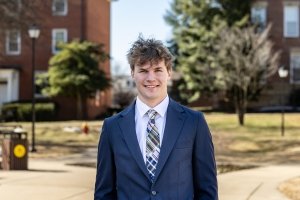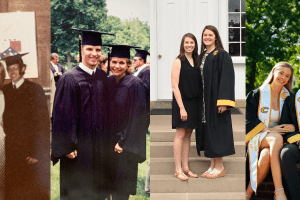Compassion and community mark disaster relief initiative headed by Marsha Mount Shoop '91
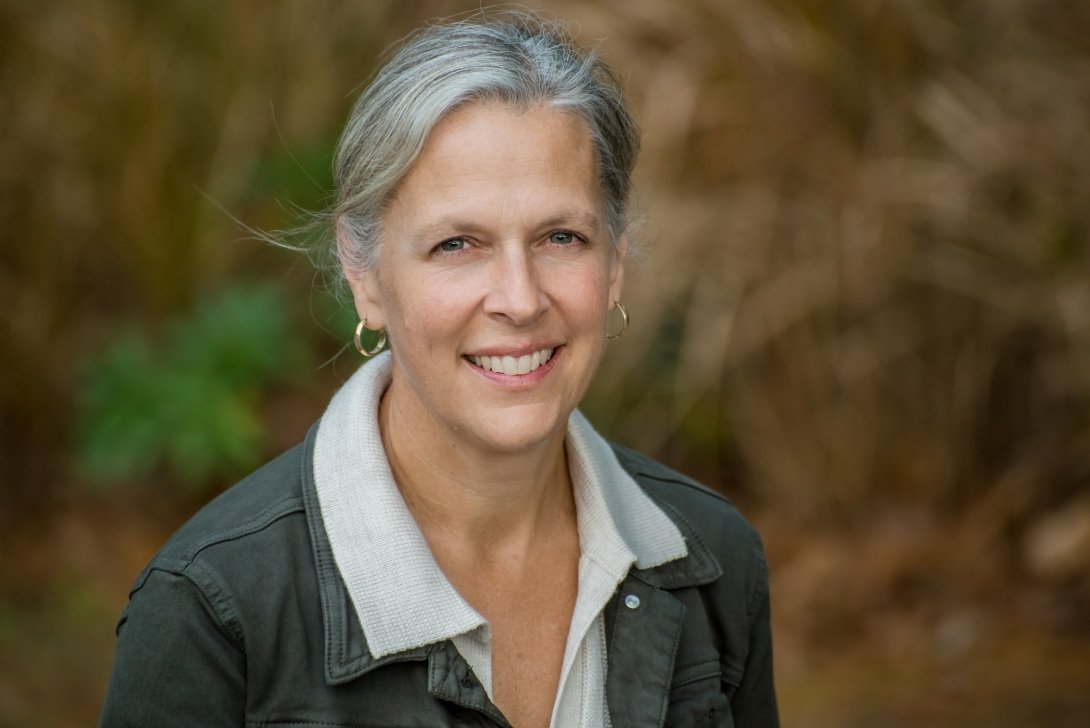
First came the winds that downed trees by the hundreds, followed by rain and floods that washed away highways, city streets, homes, businesses and entire towns.
Then the people came, some homeless, many more left jobless and without the means to pay rent.
They came by the handfuls, then by the dozen, and eventually by the hundreds — friends, neighbors and strangers, all left needing a helping hand by the fury of the storm.
Waiting for them was a Centre College grad — Marcia Mount Shoop ’91 — and volunteers from within and outside the 700-member Asheville, North Carolina, church she pastors.
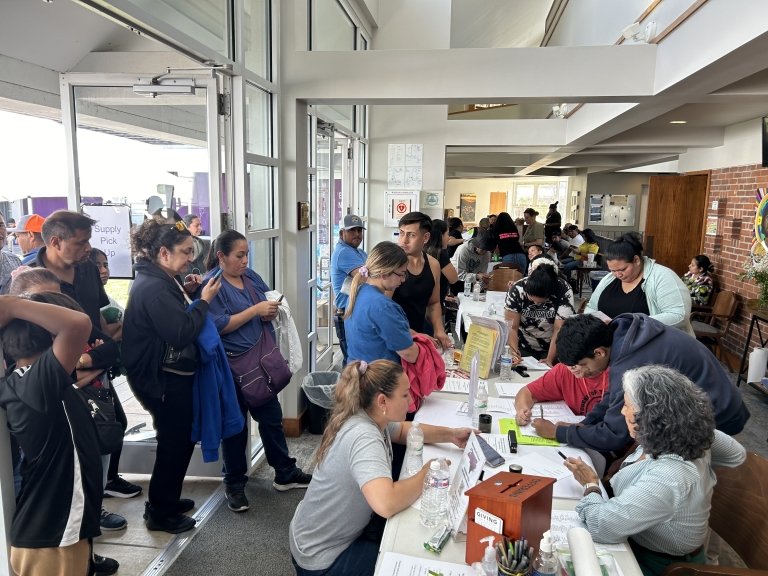
The volunteers have distributed more than $4 million from donors both inside and outside western North Carolina to provide rent relief and offer a lifeline to those facing eviction and homelessness.
How extreme was the shelter crisis?
“We had some people who were living in their cars,” said Shoop. “Our lives just changed. Nothing’s the same now.
’It was terrifying that night.’
The remnants of Hurricane Helene swept through Western North Carolina in late September 2024, dumping more than 30 inches of rain onto an area already soaked by precursor storms that left the ground saturated and rivers full. When the clouds cleared, more than 100 lives were lost along with tens of thousands of homes and businesses. Flash floods, mud slides and gale force winds lefts roadways impassable and neighborhoods cut off from the outside world.
As the lead pastor at Asheville’s Grace Covenant Presbyterian Church, Mount Shoop — daughter of two longtime Centre faculty members, religion and ethics professor Eric Mount and his late wife, Truly, who taught French — has gained national attention for the way her congregation continues to pitch in to provide relief.
“These were pretty powerful winds. It was terrifying that night and the rain just went on and on and on,” she recalled.
Mount Shoop and her husband John’s house in the Fairfield area south-southeast of Asheville is located on a hillside and escaped the flash floods. But the winds downed trees and power lines — one of which fell into a water trough for their horses — forcing them into the elements to gather their animals.
“Every few minutes you’d hear another tree go down,” she said.
But they were lucky.
”A lot of people died out our way… We had a lot of neighbors that lost everything,” she said.
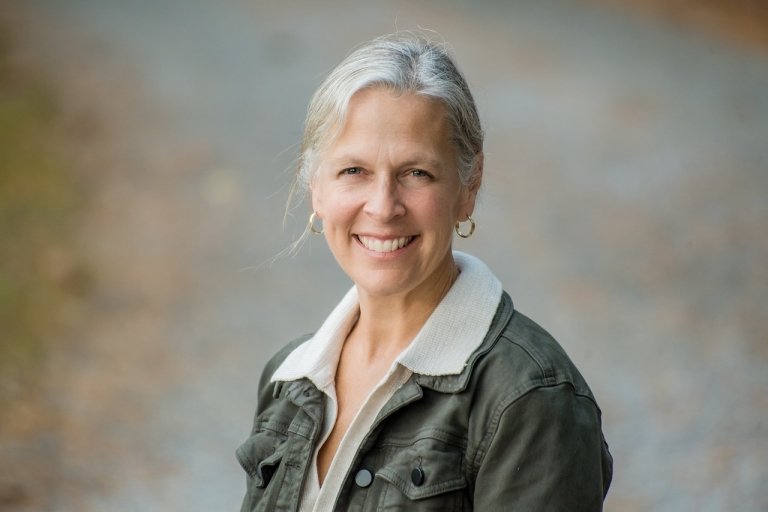
Mount Shoop is nothing if not involved and determined, characteristics learned from her parents and her upbringing in Danville and at Centre. Those instincts kicked in virtually as soon as the storms subsided.
The first Sunday after the floods, Marcia and John made their way over buckled and mudslide-covered roads to Grace Covenant. They weren’t expecting a big turnout.
”I just knew some people were going to be there… We passed some people on the road who had no place to go.”
People were waiting, and they were anxious and in need.
”We got people some bottled water. We found any snacks we could.”
An ad hoc conversation began.
”I said, ’So what should we do?’”
Mount Shoop suggested opening church doors from noon to 4 p.m. seven days a week, all staffed by the volunteers.
“And they’re like, ’Okay,’” she said. And that was the beginning of what turned into a massive grassroots relief effort.
As aid organizations swarmed the region to provide clean water and food, the church found unmet need among those who worked in Asheville’s service industry, normally bolstered by a booming tourism sector. The church offered rent support to those who lost their jobs in the wake of the storms, helping provide shelter to hundreds who might not have directly qualified for federal disaster relief funds.
News of their work got out — not by TV, radio or online sources, but by word of mouth. Electricity remained spotty, at best, and cell towers were down, so neighbors talked to one another.
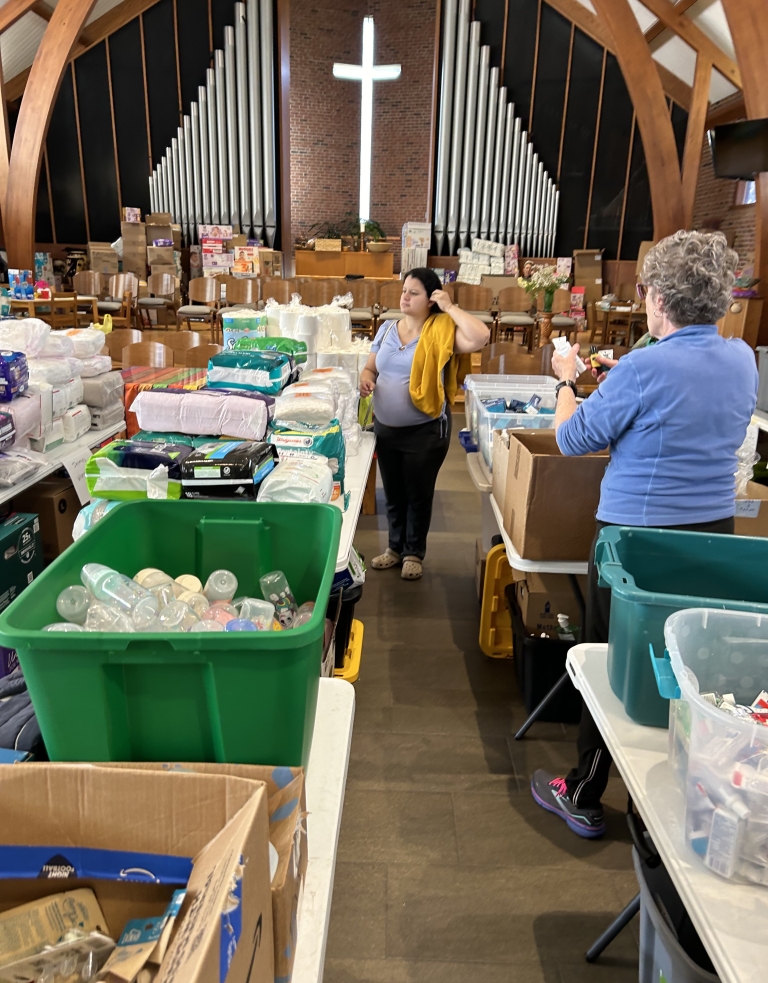
And money trickled in. Then it poured in — from individuals, organizations and local, state and federal agencies.
”One woman came in and asked to observe. I said, sure,” Mount Shoop recalled.
The visitor watched volunteers help destitute and desperate people. (Mount Shoop noted landlords have been patient; still, they had mortgages to pay and repairs to make.)
”After a few hours, she said, ’Okay, I’ve seen enough.” She pulled out her checkbook. “Who do I make this out to?”
The check, Mount Shoop said, was for $50,000.
Other donations came in from coast to coast, along with national media coverage from outlets including The Washington Post and NPR.
’I’m a child of that place’
Five months later, the devastation remains — “They’re saying recovery will take years” — and the program continues, although volunteers provide help two days a week. Donations still come in.
“I get on the horn and beat the bushes. We do everything we can to get more funding… We’re all trying to feel our way to commit to longer-term recovery. We call it ’God’s economy,’” Mount Shoop said.
Her drive is imprinted in her DNA, literally. Her father, Eric Mount, was an activist in the Civil Rights Movement and supported by her mother, Truly. For the decades they were at Centre, the elder Mounts emphasized to their four daughters and hundreds of students the importance of living their principles, following the Gospel and helping others.
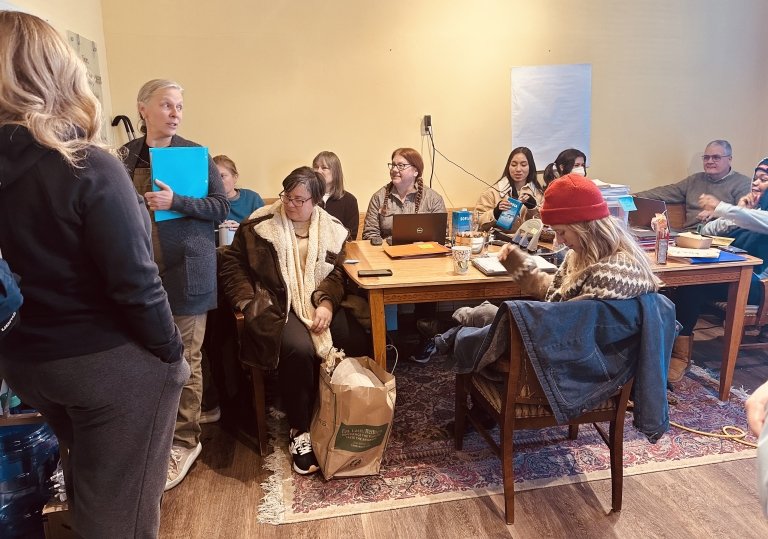
Marcia Mount Shoop, an athlete at Centre who later earned her master’s in divinity at Vanderbilt Divinity School and her doctorate in religious studies at Emory, applied her knowledge as an activist in both nonprofits and churches across the country. Her focus was — and is — on helping marginalized people.
Marcia said both Centre and Danville instilled those values.
“Because I grew up on Centre’s campus, I’m not just an alum. I’m a child of that place. I was born and raised in Danville and on that campus, and that’s where I learned about what it means to be a community,” she said.
”That’s where I learned about the human family. That’s where I learned about radical hospitality. That’s where I learned about justice.”

